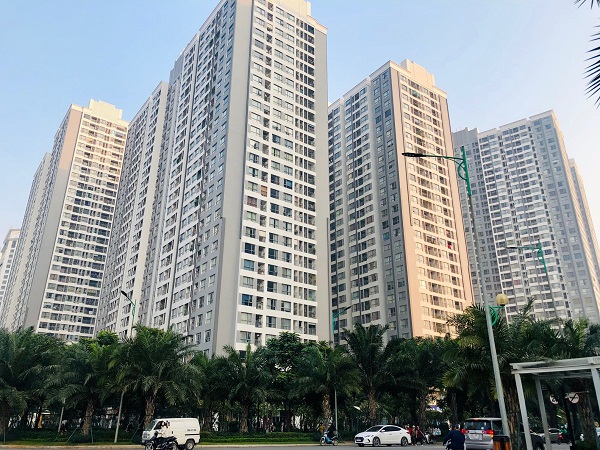An enterprise or the State agency should be responsible for the management of apartment buildings and the building’s maintenance fund with the participation of representatives including residents, investors and local management agencies.

An enterprise or the State agency should be responsible for the management of apartment buildings and the building’s maintenance fund with the participation of representatives including residents, investors and local management agencies, said Dong Minh Son from Ha Noi Construction Association.
He said the capital city has been collecting opinions to issue its own regulations on apartment management, including management over maintenance funds.
The city needs to consider its characteristics as the capital to have more specific regulations on ownership and use of common areas in apartment buildings, especially those located near political, security and defence institutions, and more effective solutions in managing the maintenance fund, according to Son.
Architect Dao Ngoc Nghiem, Vice Chairman of Ha Noi Urban Planning and Development Association, said the management of condominiums must come from planning and projects. Therefore, the boundary around the apartment building should be defined in the master plan to avoid disputes between investors and residents because the apartment is not only the building itself but also the surrounding space.
Meanwhile, Le Thi Bich Thuan from the Vietnam Federation of Civil Engineering Association, said in the process of making apartment management regulations, Ha Noi should pay attention to suburban areas, in which the state management apparatus has works including agricultural land and village management. After the urbanisation process, the apparatus would have to manage on a larger scale, so it would be hard to meet professional qualifications, creating more difficulties in management of many fields, including apartment buildings.
Deputy Director of Hanoi Department of Construction Nguyen Chi Dung said before the 2005 Housing Law came into effect, the management of apartment buildings was given to the investor and the maintenance fund came from the rent of the building’s first floor for business activities. This model has many problems due to the monopoly of the investor.
After the Housing Law came into effect, the Ministry of Construction issued regulations on managing the operation of condominiums, including the management board model and maintenance fund from two per cent of the contract of apartment buyers.
"However, at present, there are many disputes such as the establishment of the management board, defining common and separate areas, and the maintenance fund itself," he said.
For instance, after the management board is established, the investor must hand over related documents, but this process is often very slow. For common and private areas, the legal regulations are very clear, but home buyers often do not read the contract carefully, so when living there, they have complained about those issues.
Before having a management board, the investor manages the operation of the building and the maintenance fund. After a board is established, the investor must hand over the fund to the board, but the board does not accept the investor’s spending from the maintenance fund, leading to lawsuits, Son said.
Ha Noi has 833 commercial apartment buildings with over 230,000 apartments in use, of which more than 80 apartment buildings have witnessed disputes. The city’s Department of Construction has solved those disputes in 79 of them.
Nearly 600 out of the 833 apartment buildings have established management boards, investors of 300 apartment buildings have transferred the 2-per-cent maintenance fund to the management boards.
In addition, the city currently has 174 resettlement apartment buildings in operation, of which 82 buildings have management boards and the investors of 50 of 82 apartment buildings have handed over the maintenance funds for the boards. — VNS





